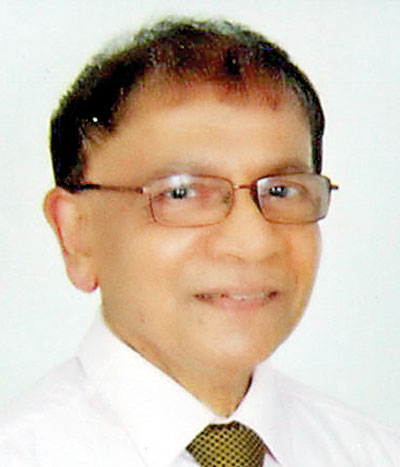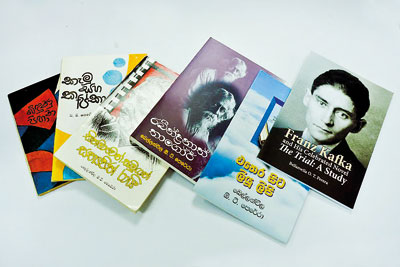Lankan author’s insight into Kafka’s famed work
View(s):
Bellanwila O.T. Perera
Any reader of Franz Kafka’s writings will know how unsettling his books leave one feeling. Hence it is no surprise that the word Kafkaesque is now widely used to describe situations that are nightmarish, bizarre or even illogical. But as dark as his novels maybe, Kafka who died in 1924 remains one of the most widely read authors with millions of people continuing to be enthralled by his works.
One such person is Bellanwila O.T.Perera, a Sri Lankan domiciled in the UK who has done a study on “The Trial”, one of Kafka’s most famous books and also traced the life of the world renowned Czech writer in an attempt to understand how much of his personal experiences are reflected in his writings. But Perera knows that like many others who have tried to unravel Kafka, it is not an easy task.
When Perera set out to write the book he titled, “Franz Kafka and his celebrated novel The Trial: A Study”, a friend had told him, “I hope you won’t destroy the mystery”.
Like Perera himself admits, there is little danger of that happening. “The mystery that has been explained in so many ways is still a mystery. No one systematic interpretation has been able to pin down all the possible meanings of Kafka’s work. Nor do we really know for certain what any story of Kafka’s is really about,” the author says in the foreword.
The Trial, a book published in 1925, a year after Kafka’s death tells the terrifying tale of Josef K., a respectable bank officer who is suddenly and inexplicably arrested and must defend himself against a charge about which he can get no information.
And despite his frantic efforts, he is unable to discover the authority behind his arrest, the identity of the accusers, the nature of the charges or gain access to the judges who condemn him.
“Someone must have been telling lies about Josef K., he knew he had done nothing wrong but, one morning, he was arrested.” This is the opening line of The Trial and as we know from experiences in our own country, an arrest without reason, by unidentified persons is a nightmare that has become a reality to hundreds of people.
When Josef.K. asks the man arresting him, “And why am I under arrest?” he is bluntly told, “That’s something we’re not allowed to tell you.”
From then on, Josef.K lives a nightmare day in and day out as he struggles to understand why he is being put through the predicament and with each turn of the page, his situation gets more and more desperate only to end in very Kafkaesque fashion with his killing.
For Perera, who is an ardent fan of Kafka’s work, hidden amidst the dark tale is how helpless man can be when living within systems that are closed and secretive.
As the author says, “The Trial” is open to interpretation by each reader who can draw their own conclusion on whether Josef.K. is actually guilty of a crime or if he is a pawn in the hands of invisible forces who want to see him dead. The questions are best left to each reader to answer, Perera concludes.

Chandani Kirinde


